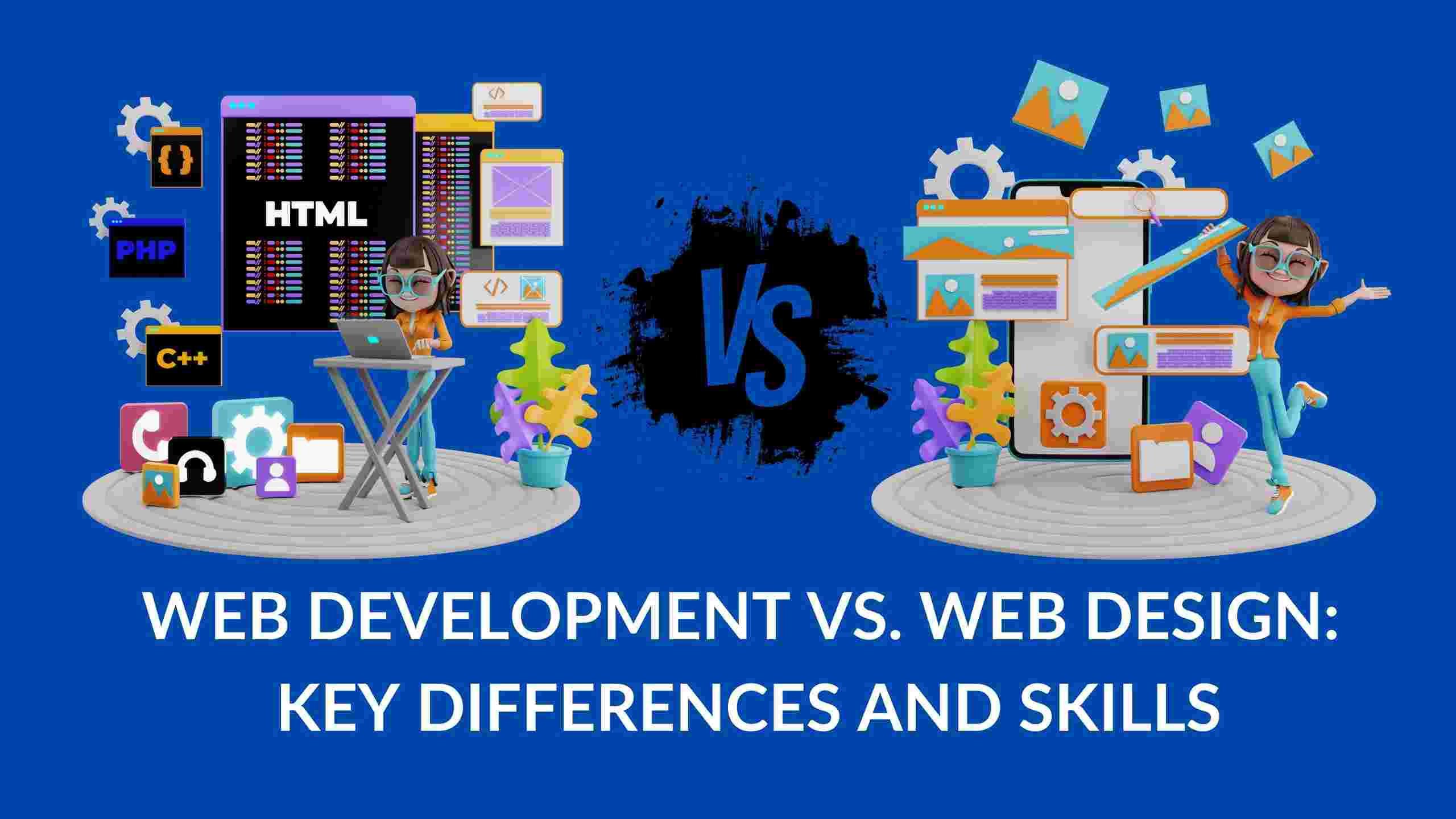Web Development vs. Web Design: Key Differences and Skills
- WebOps Platforms Bug Tracking & Feedback Software Web Development & Design


Web Development vs. Web Design: Navigating the Key Differences and Essential Skills
In the vast realm of website creation, two distinct roles play a pivotal part—web designers and web developers. While their collaboration is often seamless, understanding the nuances of their individual responsibilities, skill sets, and career trajectories is crucial for anyone aspiring to enter or collaborate effectively within the dynamic field of web development.
Unveiling the Distinct Roles
Web Designers: Crafting Digital Aesthetics
Web designers are the architects of a website’s visual appeal and user experience. They meticulously shape the look and feel, incorporating elements like color schemes, graphics, and intuitive navigation. Tools such as WordPress, Adobe Dreamweaver, and InVision Studio are their companions in creating captivating and user-friendly interfaces.
Related Resource: Digital Silk – Web Design vs. Web Development
Web Developers: Transforming Vision into Code
On the flip side, web developers take the creative vision provided by designers and translate it into functional code. Working with tools like Angular.JS, Chrome DevTools, and Sass, developers ensure the seamless operation of websites across browsers and devices. They are the technical architects responsible for implementing and enhancing site functionalities.
Related Resource: Elementor – Web Designer vs. Web Developer
Skill Set Dissection
While there’s a degree of overlap, the skill sets of web designers and web developers have distinct focal points.
Web Designers: Masters of Aesthetics
Web designers delve into layout and design tools, bringing life to the visual aspects of a site. Their expertise lies in understanding aesthetic principles to craft a compelling internet presence.
Web Developers: Code Craftsmanship
In contrast, web developers navigate various software tools, writing code while also considering the user experience. Whether working on the front-end, back-end, or full-stack, developers need a strong technical acumen to bring functionality to the forefront.
Related Resource: HubSpot – Web Design vs. Web Development
Career Outlook and Compensation
The demand for both web designers and web developers is on the rise. According to the US Bureau of Labor Statistics (BLS), a 13 percent growth is projected for these fields over the next decade.
In terms of compensation, web designers in the US earn an average annual salary of $63,019, with experienced designers on enterprise-level projects commanding higher figures. On the other hand, web developers, with their deeper technical skill set, have an average salary of $82,450.
Related Resource: Web Design vs. Web Development – CIIT
Elevating Your Career and Salary
Building New Skills
While designers and developers may have different core skills, understanding each other’s work is valuable. Collaboration becomes more seamless when designers grasp the technical aspects and developers appreciate design principles. Companies often provide training programs for employees to enhance their skills.
Insider Tip: “Surround yourself with people who push you to grow,” advises Mari Batilando, a software engineer at Meta. Engage in work that you find rewarding and mentally stimulating.
Pursuing Certification or Degrees
Certification programs offer avenues for learning new platforms and techniques. Web designers often possess degrees in computer programming or graphic design, while web developers commonly hold at least a bachelor’s degree in computer science.
Related Resource: Web Design vs. Web Development – Upwork
Negotiating Current Salary
Documenting your contributions to the organization and showcasing how you’ve enhanced your skills can be pivotal during salary negotiations. Undertaking coursework or earning certifications in relevant tools can strengthen your case for a salary increase.
As the web development landscape evolves, continuous learning and adaptability are key to thriving in either role. By staying informed and embracing opportunities for growth, you can navigate the dynamic field of web development with confidence and success.








